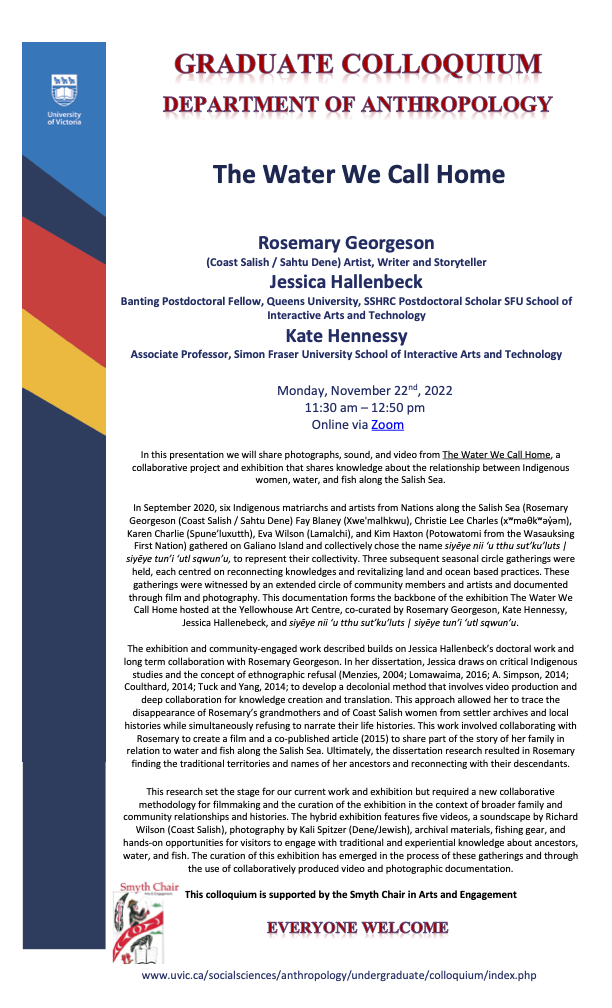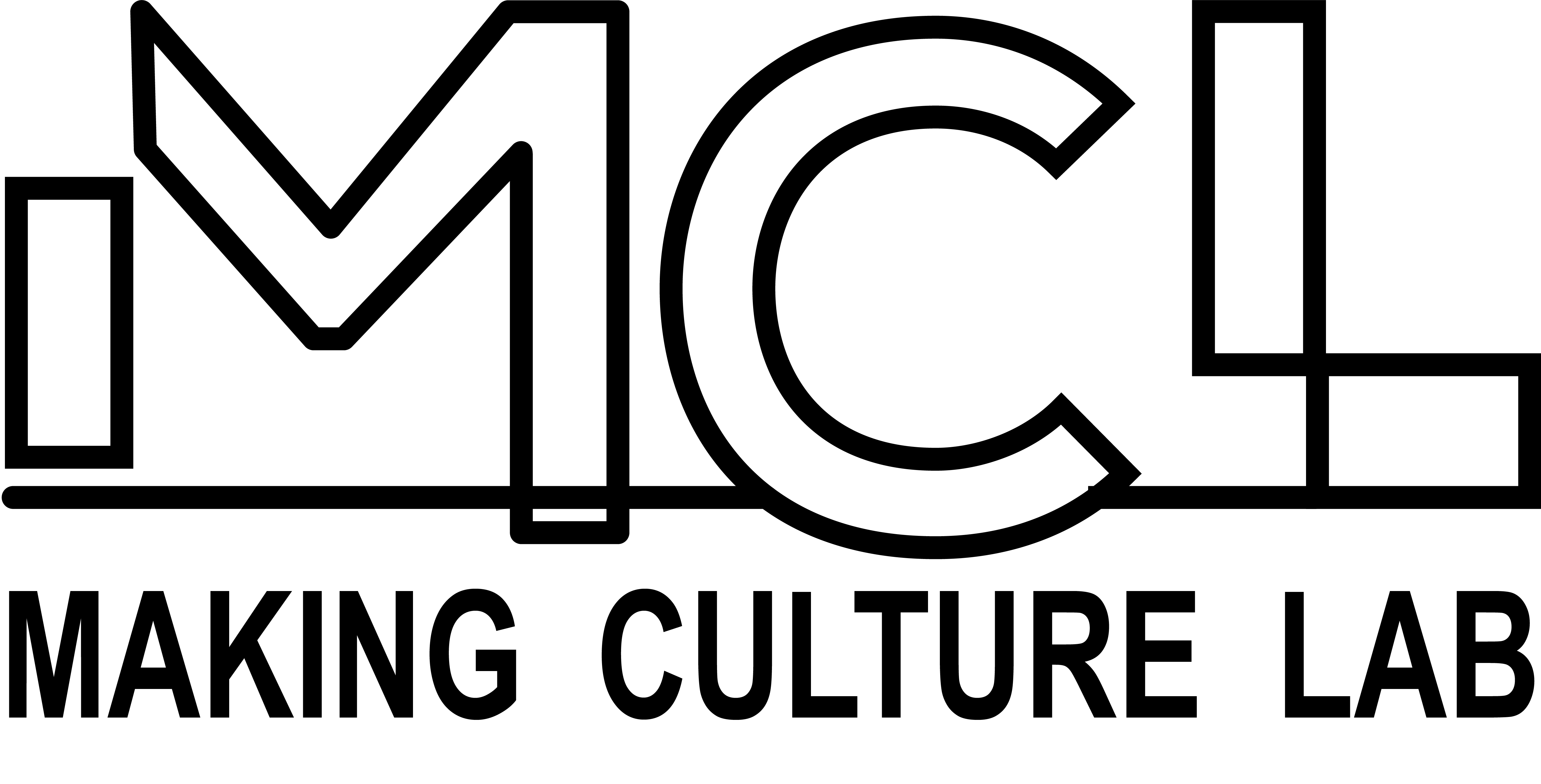The Water We Call Home – Invited Presentation, Department of Anthropology, University of Victoria

The Water We Call Home
Rosemary Georgeson (Coast Salish / Sahtu Dene) Artist, Writer and Storyteller
Jessica Hallenbeck, Banting Postdoctoral Fellow, Queens University, SSHRC Postdoctoral Scholar SFU School of Interactive Arts and Technology
Kate Hennessy, Associate Professor, Simon Fraser University School of Interactive Arts and Technology
In this presentation we will share photographs, sound, and video from The Water We Call Home, a collaborative project and exhibition that shares knowledge about the relationship between Indigenous women, water, and fish along the Salish Sea.
In September 2020, six Indigenous matriarchs and artists from Nations along the Salish Sea (Rosemary Georgeson (Coast Salish / Sahtu Dene) Fay Blaney (Xwe’malhkwu), Christie Lee Charles (xʷməθkʷəy̓əm), Karen Charlie (Spune’luxutth), Eva Wilson (Lamalchi), and Kim Haxton (Potowatomi from the Wasauksing First Nation) gathered on Galiano Island and collectively chose the name siyēye nii ‘u tthu sut’ku’luts | siyēye tun’i ‘utl sqwun’u, to represent their collectivity. Three subsequent seasonal circle gatherings were held, each centred on reconnecting knowledges and revitalizing land and ocean based practices. These gatherings were witnessed by an extended circle of community members and artists and documented through film and photography. This documentation forms the backbone of the exhibition The Water We Call Home hosted at the Yellowhouse Art Centre, co-curated by Rosemary Georgeson, Kate Hennessy, Jessica Hallenebeck, and siyēye nii ‘u tthu sut’ku’luts | siyēye tun’i ‘utl sqwun’u.
The exhibition and community-engaged work described builds on Jessica Hallenbeck’s doctoral work and long term collaboration with Rosemary Georgeson. In her dissertation, Jessica draws on critical Indigenous studies and the concept of ethnographic refusal (Menzies, 2004; Lomawaima, 2016; A. Simpson, 2014; Coulthard, 2014; Tuck and Yang, 2014; to develop a decolonial method that involves video production and deep collaboration for knowledge creation and translation. This approach allowed her to trace the disappearance of Rosemary’s grandmothers and of Coast Salish women from settler archives and local histories while simultaneously refusing to narrate their life histories. This work involved collaborating with Rosemary to create a film and a co-published article (2015) to share part of the story of her family in relation to water and fish along the Salish Sea. Ultimately, the dissertation research resulted in Rosemary finding the traditional territories and names of her ancestors and reconnecting with their descendants.
This research set the stage for our current work and exhibition but required a new collaborative methodology for filmmaking and the curation of the exhibition in the context of broader family and community relationships and histories. The hybrid exhibition features five videos, a soundscape by Richard Wilson (Coast Salish), photography by Kali Spitzer (Dene/Jewish), archival materials, fishing gear, and hands-on opportunities for visitors to engage with traditional and experiential knowledge about ancestors, water, and fish. The curation of this exhibition has emerged in the process of these gatherings and through the use of collaboratively produced video and photographic documentation.

